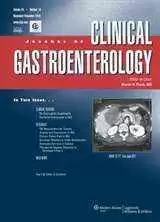The following post is from Dr. Joseph Murray, one of the leading USA physicians in the diagnosis of celiac disease (celiac disease) and dermatitis herpetiformis (DH). Dr. Murray (Open Original Shared Link) of the Mayo Clinic Rochester, MN, is a gastroenterologist who specializes in treating Celiac disease:
Celiac.com Sponsor (A12):
A recent poster asked about refractory celiac disease. This is a highly complex area and is the most challenging in dealing with celiac disease. While refractory celiac disease can be defined as a patient with celiac disease whose symptoms do not respond to a gluten-free diet there are several important questions and issues in coming to the determination that the patient is really suffering from true refractory disease. To make the diagnosis conclusively, first one must be satisfied that there is not another cause for the problem. Though rare, there are other conditions that can mimic, or coexist with celiac disease, and cause continued problems. The second issue is whether the patient is truly gluten-free, and have they been so long enough to conclude that there has been a failure with the diet? To make this determination I have the patient keep a complete and detailed dietary record for 3-4 weeks listing every single item they ate and have them save the wrapper or carton for review. If the dietitian or myself feel that there is any possibility of contamination then we exclude that item and wait longer. Sometimes the patient is exposed to a higher risk of gluten contamination by eating out a lot, where they do not have true control over the food preparation. We also check medications that the patient takes regularly. I also check the endomysial antibodies and gliadin antibodies. These should be negative if the patient has been gluten free for at least 6 months. The gliadin IgG may persist longer but usually its levels drop. If these are positive, this makes me think that they have had significant gluten in the diet in the recent past (Note: there still may be gluten in the diet if the test is negative). The original and follow-up biopsies should be compared to see if there has been any improvement. Assuming that these criteria are met, then one can proceed to consider the patient to have refractory disease. At that point it is important to check for complications such as lymphoma, lymphocyctic colitis and possibly pancreatic insufficiency. I treat the patient with a course of antibiotics and consider adding in pancreatic supplements to see if that will help the patients symptoms. It is only at this point that I consider some suppression of the immune system, such as with steroids or some other agent. Rarely will the patient be so ill that one must accelerate the decision to treat with steroids. Steroids are powerful medicines that can be very helpful, and even lifesaving in many cases, but have attendant risks that should be discussed prior to use. This is not medical advice and should not be used as such.








Recommended Comments